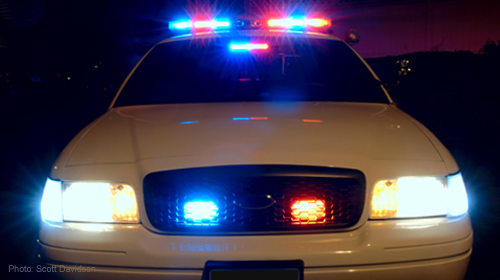Civil Rights Organizations File Lawsuit Challenging Georgia Law That Punishes People Simply for Being Poor
ATLANTA, GA— Today, the American Civil Liberties Union, the American Civil Liberties Union of Georgia, and the Southern Center for Human Rights filed Coronell, et al. v. Georgia, a class action lawsuit brought by people denied an individual determination of bail and Women on the Rise, a grassroots organization led by formerly incarcerated women that advocates for ending cash bail and pretrial incarceration.
The lawsuit seeks to strike down Senate Bill 63, a Georgia law passed in 2024, that has led to thousands of people with low or no income being kept in jail before having a trial, even when a judge believes the person should have been released, with no risk to the public. The lawsuit challenges SB 63’s mandatory cash bond provisions under the due process clause of the Georgia state constitution. The plaintiffs ask the court to declare SB 63 unconstitutional and enter a permanent injunction that prevents state actors from enforcing its mandatory cash bond provisions.
“Women on the Rise’s involvement in this lawsuit is important to us because of the injustices we see that are happening to those the system says are presumed innocent until proven guilty. Denying bail can undermine this principle, as people may be held in custody despite not having been convicted of a crime,” said Robyn Hasan-Simpson, executive director of Women on the Rise. “Our hope is that this gives access to everyone to gain their freedom while addressing the charges that have been brought against them, for those to maintain employment, housing, and fulfilling the role they have as members in our community.”
SB 63 makes cash bond mandatory for dozens of charges, most of them misdemeanors. When a person is arrested and accused of such an offense, SB 63 forces a judge to set a cash bond that the person must pay to get bailed out of jail. When setting bail, judges are no longer allowed to take into account critical facts and circumstances — such as a person’s strong family connections, local community ties, and employment record; the absence of past criminal convictions; and a history of following court requirements —that show that a person can be safely released under less-restrictive conditions while still assuring they will return to court and not endanger the public. This inevitably leads to people being incarcerated, often in dangerous jails, simply because of poverty.
“Under SB 63, people who cannot afford to pay a cash bond will be forced to languish in jail, often for weeks or months,” said Julian Clark, staff attorney with the ACLU’s Criminal Law Reform Project. “By punishing those unable to pay for their freedom with incarceration SB 63 imposes significant societal costs — ones that are disproportionately incurred by Black and brown communities. No one’s freedom should depend on how much money they have.”
Plaintiff Sierrah Coronell has been incarcerated for 77 days because she cannot afford to pay her $600 cash bond. As directed by SB 63, the judge was not permitted to consider whether any release conditions other than cash bond would reasonably ensure her appearance in court and the safety of the public. Prior to her arrest, Ms. Coronell was the primary caregiver of her five children, ages 3, 5, 7, 10, and 15. As a result of her incarceration, Ms. Coronell is unable to care for her children, leaving her mother and her children’s father to be their sole caretakers in her absence. Ms. Coronell’s incarceration has also forced her to miss her oldest daughter's 15th birthday.
“Georgia is a particularly cruel state that locks up a higher percentage of its population than any independent democratic country in the world. This lawsuit would bring an end to holding the most vulnerable people at Fulton County Jail and in all jails across the state simply because they can’t afford to pay bail. These practices are wasteful, costly, cause overcrowding, and do not improve public safety. We are committed to ending these cruel and unconstitutional policies in Georgia,” said Andrea Young, executive director, ACLU of Georgia.
“I’ve met many people in Georgia jails who cannot get out because they cannot buy their way out. People who don’t have loved ones who can pay a couple hundred dollars, or in some cases as little as 10 dollars, to post their bail. People who the courts have deemed ready for release but remain in jail for no other reason than their low income. SB 63 isn’t making us safer. It’s keeping our jails full, separating people from their jobs, families, and homes, and all but guaranteeing that people leave worse than when they came in. It’s difficult to think of a more backwards policy,” said Lachlan Athanasiou, legal fellow in SCHR’s Impact Litigation Unit.


